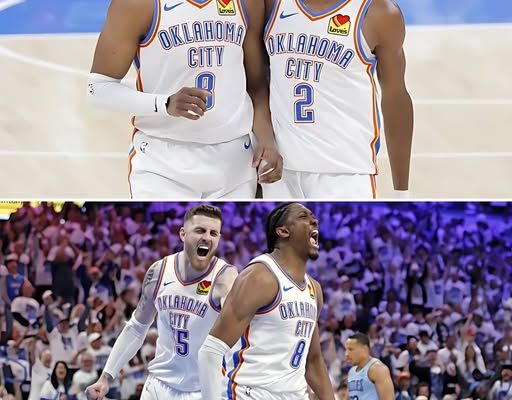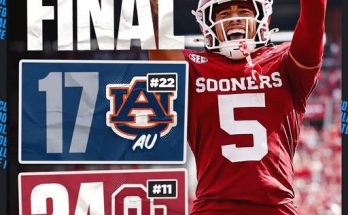The coronation of the Oklahoma City Thunder as the 2024-25 NBA champions was the culmination of a decade-long strategic masterpiece, a testament to the patience, foresight, and relentless execution of their front office, a group now universally regarded as the gold standard of professional sports. Following the Thunder’s historic season, which saw them clinch the franchise’s first NBA title since relocating from Seattle, the accolades for the team’s leadership poured in, with a CBS Sports analyst, Sam Quinn, leading the charge by ranking the Thunder’s front office, led by executive vice president and general manager Sam Presti, as the NBA’s undisputed best. It was a ranking that felt less like an opinion and more like a simple statement of fact, an undeniable truth in the wake of a championship run that redefined what a modern rebuild could achieve. Quinn’s analysis, published just days after the championship parade, delved beyond the obvious, highlighting not just the success but the masterful process behind it. He celebrated Presti’s genius in a way that resonated with the basketball world, emphasizing that the plan’s brilliance was matched only by its flawless execution. The Thunder didn’t just accumulate a war chest of draft picks; they maximized the value of every single one, turning what could have been a random assortment of young talent into a cohesive, championship-winning machine.
The story of the Thunder’s rise is now a part of NBA lore, a cautionary tale for those who seek shortcuts and a blueprint for those with the courage and long-term vision to follow a true process. It began in earnest with the blockbuster trade of Paul George, a move that, at the time, was seen by many as a surrender to a post-Russell Westbrook era. In hindsight, it was the definitive act of a rebuild that would forever be studied. The return for George, headlined by a then-unheralded Shai Gilgeous-Alexander and a historic haul of draft capital, was the ignition point for the dynasty that now seems all but inevitable. Shai Gilgeous-Alexander, the lynchpin of that deal, matured into a superstar of the highest order, a player whose relentless attacking style and impeccable decision-making led him to the ultimate individual prize. He was not merely the best player on the best team; he was the best player in the world, and his ascent was officially consecrated with the 2025 NBA Most Valuable Player award. This award, a fitting honor for a player who led his team to a stunning 68-14 regular season record, solidified the front office’s central success story. However, Presti’s genius was never about a single player. It was about creating an ecosystem where multiple stars could thrive. The subsequent drafts brought Jalen Williams, a versatile wing with a polished offensive game and defensive tenacity, and Chet Holmgren, a generational shot-blocker and floor-spacing big man. Together, they formed a young, dynamic trio that was as deadly as it was harmonious. Their games complemented each other perfectly, a strategic synergy that could only be orchestrated by a front office with a clear vision and an unwavering belief in their methodology.
The journey to the championship was far from a foregone conclusion, despite the team’s regular season dominance. The Finals series against the Indiana Pacers, a team that had surprised many on their own path to the Eastern Conference crown, was a grueling, hard-fought affair that stretched to a decisive Game 7. In a series that showcased the best of both teams, it was the Thunder’s combination of star power, depth, and unwavering execution that ultimately prevailed. The victory, a hard-earned one on their home court, sent a powerful message to the entire league: the future had arrived, and it wore a Thunder jersey. Sam Quinn’s analysis for CBS Sports was published in the immediate aftermath of this triumph, and its timing was no coincidence. The title was the ultimate vindication for Presti and his staff, the proof that their meticulous, years-long strategy had been flawless. But Quinn’s piece went deeper than just celebrating the title. He pointed to the structural brilliance of the roster, which was built not just to win today but to dominate for years to come. The Thunder’s contracts for key role players like Lu Dort and Isaiah Joe were highlighted as masterstrokes of financial engineering. These team-friendly deals, signed before the players’ explosive growth, provided the Thunder with not only a core of valuable contributors but also the financial flexibility to navigate the NBA’s increasingly restrictive new collective bargaining agreement. The front office’s ability to sidestep the punitive second-apron penalties, a financial trap that threatens to hobble many other contending teams, was a key element of Quinn’s praise. It showcased a front office that was not just good at evaluating talent, but also at understanding and manipulating the complex financial rules of the league to their long-term advantage.
Beyond the praise from CBS Sports, the Thunder’s front office received validation from a far more exclusive and informed group: their peers. The Athletic’s anonymous survey of 40 executives from across major sports leagues, a poll designed to identify the most respected and effective leadership groups in all of sports, provided a resounding endorsement. The Thunder’s front office was ranked number one in the survey, garnering an astonishing 354 points, a commanding lead over the second-place Los Angeles Dodgers, who finished with 284. This survey was a powerful statement, an acknowledgment from the very people who compete against Presti and his staff that they are in a class of their own. The fact that the Thunder were ranked ahead of a storied baseball franchise like the Dodgers, an organization renowned for its own savvy front office and consistent success, speaks volumes about the perception of Presti’s work. The executives surveyed were not just ranking the Thunder’s recent success but their overall approach to building a championship-caliber organization. They recognized the strategic brilliance in trading away a superstar for a franchise cornerstone and a motherlode of draft assets, and they saw the payoff in the form of a championship trophy. The poll also likely took into account the Thunder’s sustained flexibility, a trait that sets them apart from virtually every other contender. The team’s treasure trove of future draft capital, including a remarkable 13 first-round picks through 2031, is a strategic asset that no other team in the league can match. This draft capital gives Presti a level of optionality that is simply unprecedented. He can use these picks to acquire another star, replenish the roster as current players’ contracts expire, or package them for a move that could cement the Thunder’s status as a dynasty. This immense flexibility ensures that the Thunder’s championship window is not just open, but wide open for the foreseeable future.
The Thunder’s story is a modern parable of patience and process triumphing over immediate gratification. For years, as the team accumulated assets and developed their young talent, they were the subject of criticism and impatience. Fans and media alike clamored for the big, splashy move that would accelerate their timeline. But Sam Presti and his front office resisted the pressure, sticking to their long-term vision with unwavering discipline. They saw the value in developing their picks, trusting their scouting department, and building a foundation that was built to last. The selections of Jalen Williams and Chet Holmgren, both taken outside the top three, are perfect examples of this disciplined approach paying off. Williams, an All-NBA caliber player in his own right, and Holmgren, a defensive anchor who reshapes the geometry of the court, were not a fluke; they were the result of a meticulously executed plan. The Thunder’s success is a lesson for the rest of the league, a reminder that the most sustainable paths to greatness are often the most difficult and the least flashy. Their championship is a direct result of a front office that was brave enough to tear down a contender, patient enough to endure the rebuild, and brilliant enough to assemble a young, cohesive, and historically dominant roster. The recent accolades, from CBS Sports’ ranking to The Athletic’s executive survey, are not just a celebration of a single great season, but a recognition of a decade-long masterclass in team building. As the league now looks to the future, it is clear that the Oklahoma City Thunder, with their young core and an almost unimaginable amount of strategic flexibility, are not just a flash in the pan. They are a dynasty in the making, and the front office that built them has finally received the credit it so rightfully deserves.



